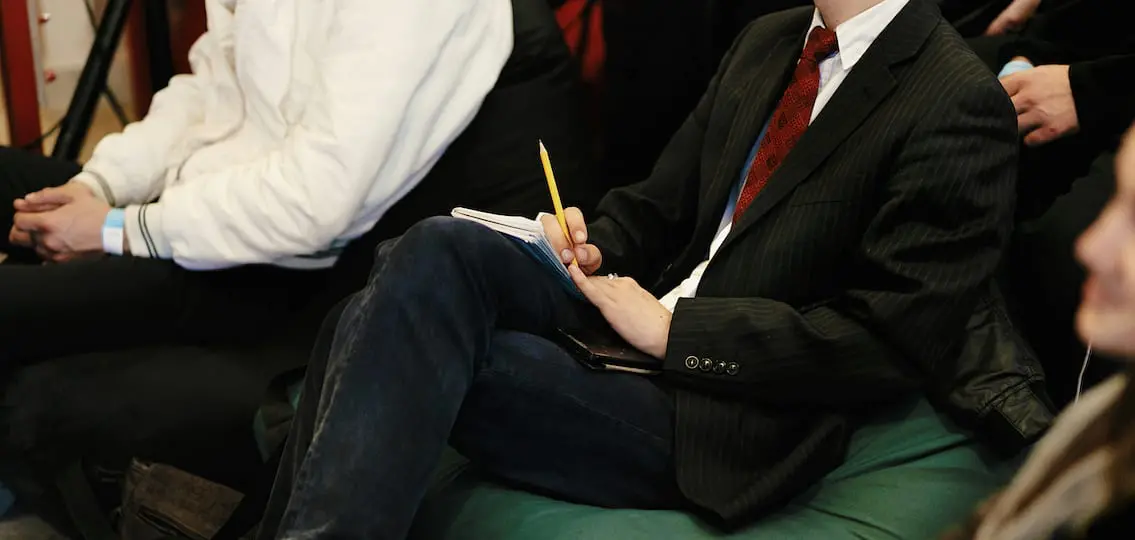To schedule a college alumni interview or not? It’s a question that high school seniors across the country grapple with every fall. Your Teen’s Risa Doherty spoke with admissions officers at Northwestern and Dickinson, as well as six alumni interviewers from competitive schools—including University of Pennsylvania, Cornell, and Tufts—who told her why applicants should seek out the college admission interview when available.

The College Alumni Interview
Q: What is an alumni interview?
A college alumni interview is just as it sounds. It’s an interview in your area with an alumnus of the college or university to which you’re applying. Some schools require applicants to have them; for others, they’re optional or only available in some geographic areas; and still others don’t offer them at all.
Q: If it’s optional, should I go?
When a school offers a student a college interview, but doesn’t require it, it can be puzzling. Students and their anxious parents are left to wonder: If it’s not required, is it safer to decline than risk the chance that it may go badly? While admissions staffers will often say it doesn’t count against a student to skip the college admissions interview, these same staffers are looking for evidence that an applicant really wants to be at their school. “Acceptance of the interview signals interest,” says Stephanie Balmer, former Dean of Admissions at Dickinson College. Balmer adds that most colleges distinguish between “hard,” or serious, applicants and “soft,” or less serious, applicants. The assumption is that if a school is an applicant’s top choice, he will make the effort to interview.
“There are other ways to show interest, such as visiting the campus or attending a local information session,” notes Allen Lentino, Senior Associate Director of Admissions and Financial Aid at Northwestern University. Still, even though Lentino downplays the necessity for a college alumni interview, he encourages students to have one if they can’t make it to the campus.
Q: Should I prepare?
Yes, definitely and absolutely. While schools say that alumni interviews can’t count against you, let’s face it, particularly at competitive schools, everything can count. Take, for example, Northwestern. On the one hand, Lentino says, “the university has found that the alumni interview rarely makes a difference – even for borderline candidates” – but he also notes, “it can raise a red flag, highlight an inconsistency on an application and help the staff gauge the applicant’s level of interest in attending the school.” In other words, an alumni interview may not significantly help or hurt, but why not be prepared, just in case? Dickinson’s Balmer sums up: “The alumni interview will not be a deciding factor, although a positive one can effectively help an applicant advance in the pool.”
Q: How should I prepare?
Once again, opinions vary. Lentino cautions against being too rehearsed, because colleges want an authentic voice. “The interview should be conversational, not confrontational: a two-way conversation,” he says. Of course, how many nervous high school seniors are capable of this kind of casual conversation, especially with a representative of their dream school? If yours isn’t, roll up your sleeves and get to work. Dickinson’s Balmer recommends that since interviewers are assessing a student’s ability to speak intelligently about himself, parents should help their teenager avoid monosyllabic responses and encourage him to take the initiative to lead at least part of the discussion. Another tip: access the college alumni network websites for information intended for interviewers, including instructions and sample questions.
Q: What kinds of questions should I anticipate?
Most interviewers use best-practice guidelines and sample questions to conduct the interview. They have some information about the student, like the student’s name, intended major, and up to two extra curricular activities. According to Balmer, interviewers are not provided with scores or grades so as not to color their opinion. Lentino stresses that the mission is not to evaluate grades—that is a job for the admissions committee. The alumnus’ task is to personalize the process, give information, and receive any significant updates.
Colleges want a personable and articulate applicant who can explain his interest in the school and describe how they spend their free time. According to Lentino, “Colleges want a thread of consistency and they want to try to determine if an activity is a deep passion or just a good interview topic.” In evaluating a student’s extracurricular involvement, Georgetown University’s Alumni Admissions Program Handbook advises alumni to try to get “an understanding of the significance of their involvement” to assess “the energy of an applicant.” Bring a resume as a starting ground for the conversation. Artwork or photos are also good aids to demonstrate a student’s passion. “Don’t bring a trumpet. Instead tell me how music shaped your life and how it formed your world view,” one interviewer recommends.

Q: Just do it!
The college alumni interview has some value, but exactly how much is impossible to determine. A student who is seriously interested in a school should request an alumni interview to maximize every effort to impress the admissions committee. The addition of a positive evaluation to a student’s file might help in the heavy competition for admission.




